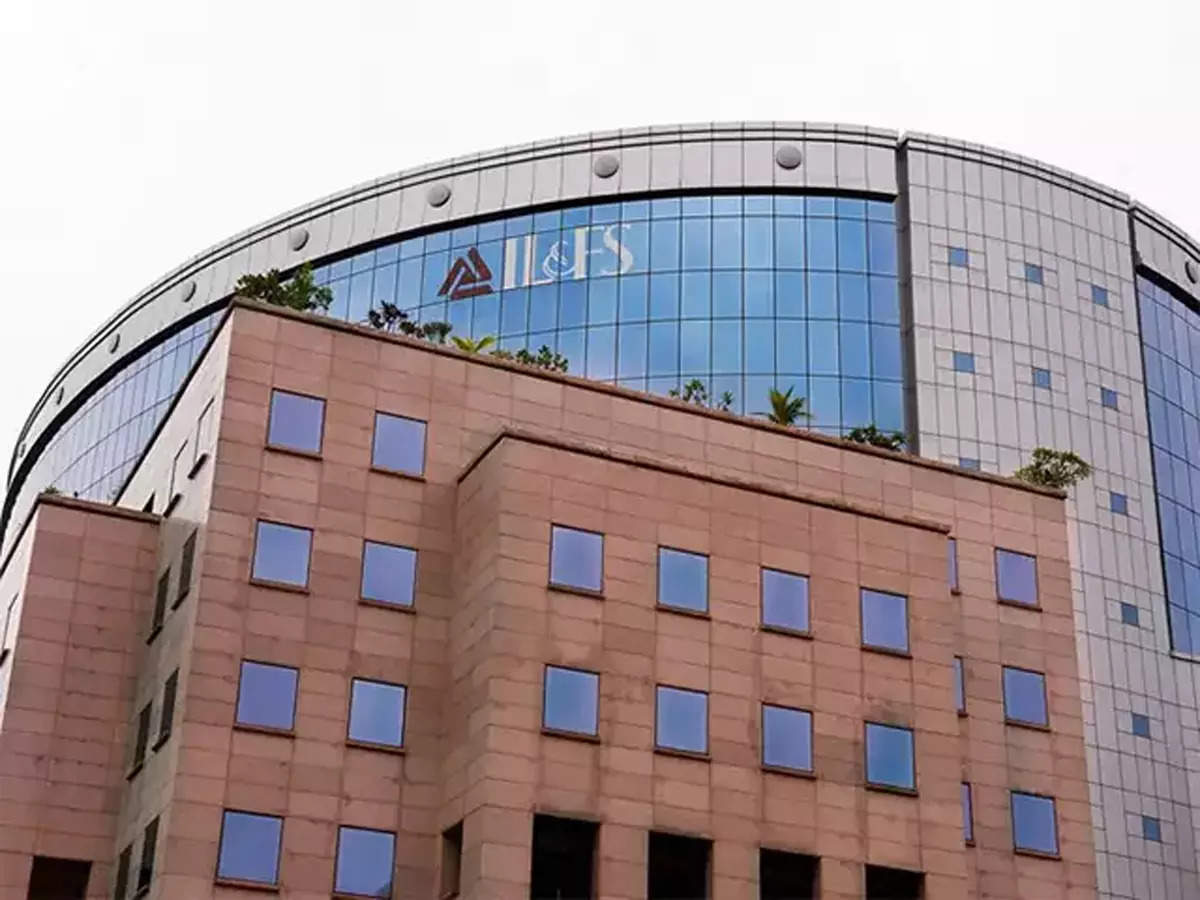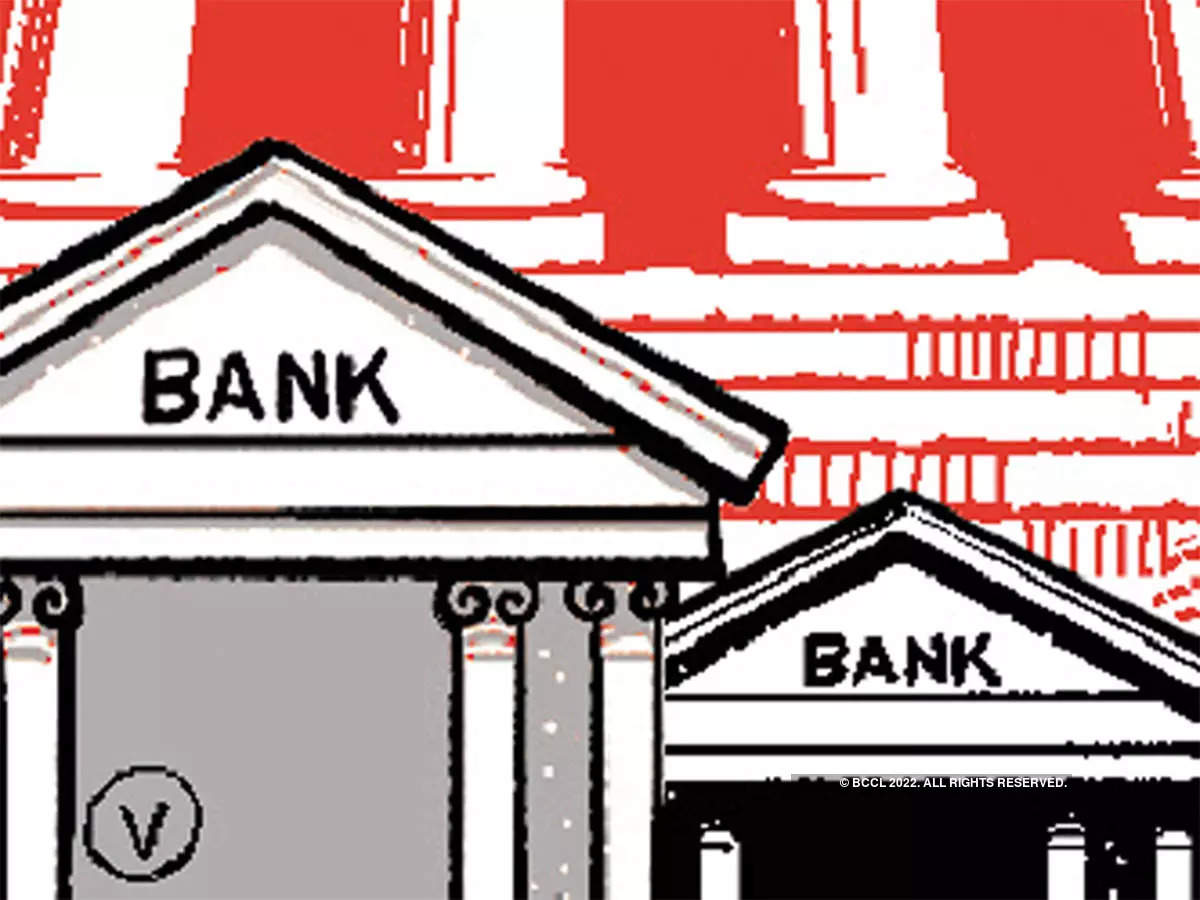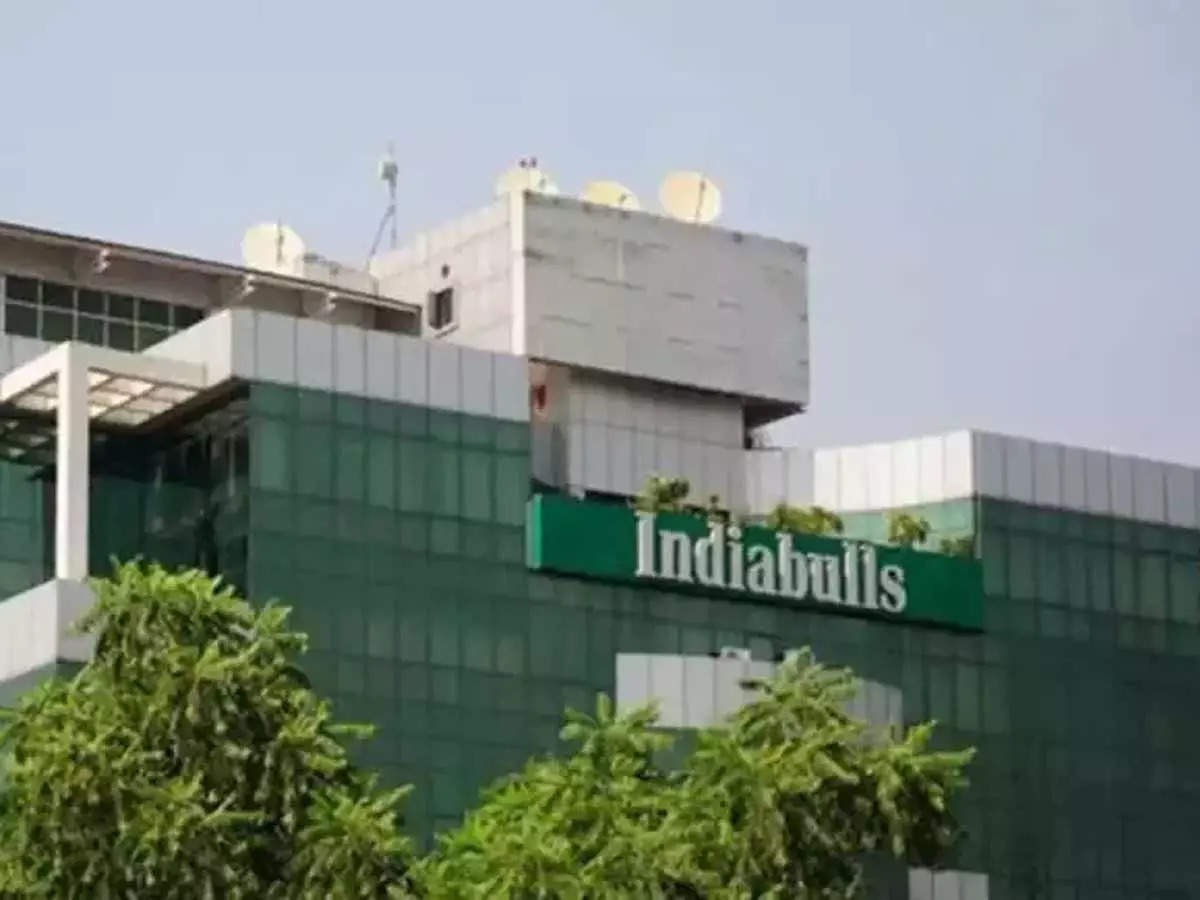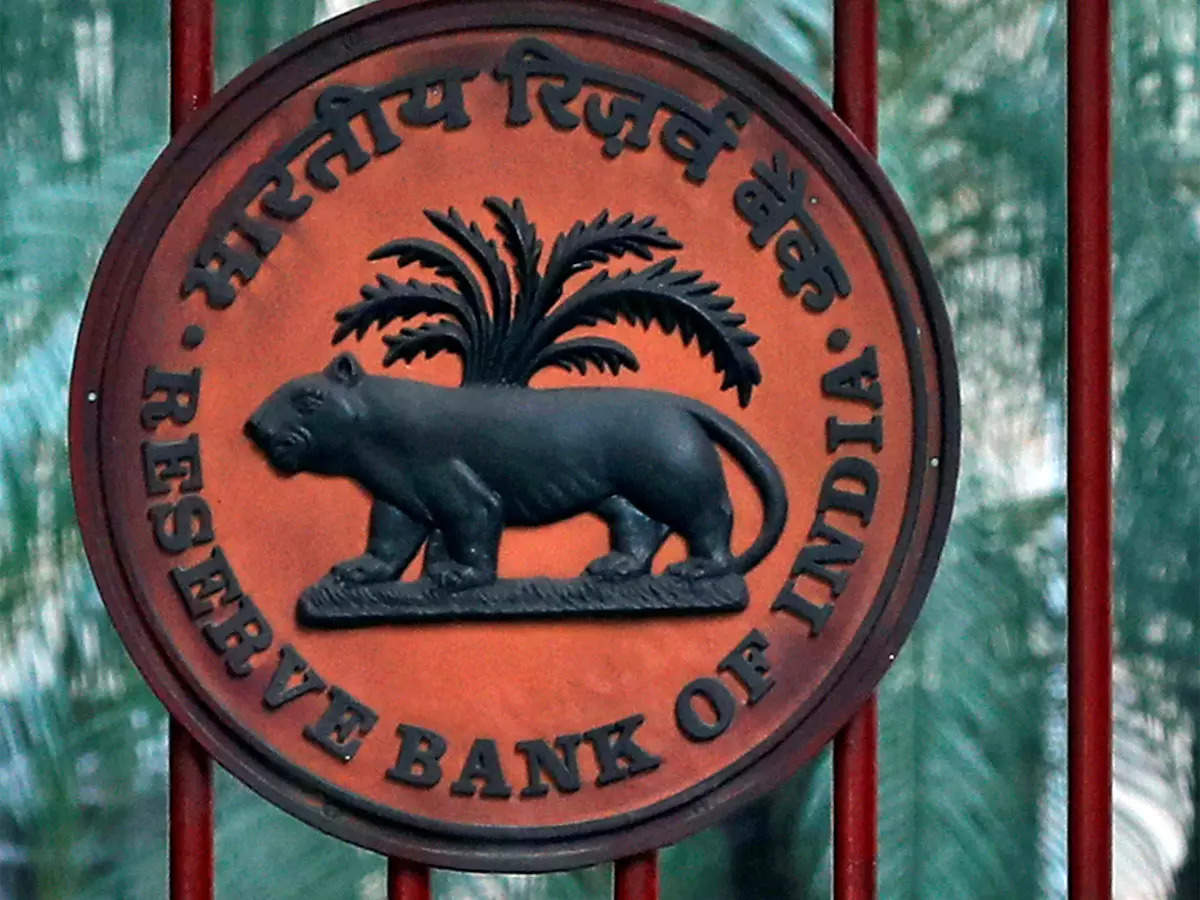from The HinduBusinessLine - Money & Banking https://ift.tt/W3QUNJK
A Complete Banking Guide... Bank of Baroda, Allahabad Bank, Andhra Bank, Bank of India, Bank of Maharashtra, Canara Bank, Central Bank of India, Dena Bank, ICICI Bank, IDBI Bank Limited, Indian Bank, Indian Overseas Bank,, Oriental Bank of Commerce, Punjab & Sind Bank, Punjab National Bank, State Bank of India, UCO Bank, UTI Bank Ltd., Union Bank of India, United Bank Of India, Vijaya Bank, Yes Bank, Mutual Funds, Income Tax

 8:09 PM
8:09 PM
 Blogger
Blogger
 2:09 PM
2:09 PM
 Blogger
Blogger
 1:09 PM
1:09 PM
 Blogger
Blogger
 7:12 AM
7:12 AM
 Blogger
Blogger
Dhanlaxmi Bank believes it has turned the corner and is poised for a healthy balance sheet in coming quarters, as it reported growth in the operating profit for the first three quarters of the current fiscal despite a decline in treasury yields. The lender recently was in the news for governance issues and a fallout between large shareholders and the board.
JK Shivan, managing director & CEO, said interest income grew 2.45% in Q3 on a sequential basis while interest expenses remained more-or-less at the same level.
The bank expects net interest income and net interest margin to further improve in coming quarters as it starts accruing interest on the increased loan book. Shivan said the bank is taking cautious steps to ensure healthy growth and there are no large-value accounts showing stress in its book.
Dhanlaxmi reported an 83% year-on-year decline in its third quarter net profit to Rs 2.03 crore.
The decline in the net profit is due to statutory provisions and provisions on the restructured book. Major slippages happened during Q1 of this financial year and were as part of stress witnessed in the economy due to Covid-19 restrictions and a major corporate account. The scenario improved in the subsequent two quarters. Strengthening the credit monitoring and administration department could reduce SMA-2 book considerably, from Rs 254 crore in Q1 to Rs 161 crore in Q2 and to Rs 99 crore in Q3,” he said.
Shivan said the lender could recover Rs 108 crore and upgrade Rs 197 crore during the nine-month period, against slippages of Rs 355 crore during the same period last year. In Q3, slippages were at Rs 25 crore and recovery and upgrades stood at Rs 60 crore.
The asset quality improved, with gross NPA as a percentage of gross advances being at 7.55% for the quarter under review, compared with 8.67 % in the second quarter and 5.78% in the year-ago period. The net NPA ratio was at 3.83%, compared to 4.92% in Q2 and 1.11% in the third quarter of the last fiscal.
 3:11 AM
3:11 AM
 Blogger
Blogger
Dhanlaxmi Bank said in a regulatory filing on Friday that the Reserve Bank of India has extended the term of Dr G Jagan Mohan, additional director, for a further period of two years from February 27, 2022, to February 26, 2024, or till further orders whichever is earlier.
Mohan, an RBI nominee, was appointed as additional director by the RBI for a period of two years on February 27, 2020.
Currently, the Thrissur-based lender has just 6 directors, including two RBI nominees as against the maximum strength of 11.
The Reserve Bank of India (RBI) had advised Dhanlaxmi Bank in June 2021 to ensure transparency in the nomination process of directors and follow best corporate governance practices.
The regulator, while pointing out that the bank has had a chequered history on the governance issues, directed the bank to expedite and complete the process of appointment of directors in accordance with the best governance standards.
A case filed by a shareholder and two others against the Bank Board’s decision of rejecting their candidature for the office of director to be placed before the members during the Annual General Meeting on September 29, 2021, is pending.
Five individuals, which include two former directors and prominent NRI Ravi Pillai, moved their candidature under Section 160 of the Companies Act and it was rejected by the board and not placed for consideration of the last annual general meeting.
 2:11 AM
2:11 AM
 Blogger
Blogger
Non-banking finance companies (NBFCs) are likely to report a 14% year-on-year loan growth in the next financial year because of higher demand in the secured asset class segment, India Ratings & Research said in its FY23 outlook for non-bank lenders. The rating agency expects NBFCs to report a 7%-8% loan growth in FY22.
Products such as loans against property (LAP) and housing and vehicle loans could witness a higher demand than personal and unsecured business loans which saw a higher demand during the pandemic, it said, adding that growth in the vehicle finance segment could revive depending on the availability of vehicles which are facing shortage of components. The gold loan segment could see a moderate growth in tandem with gold prices along with opening up of other financing avenues for borrowers.
NBFCs would begin the year with sufficient capital buffers, stable margins and sizeable on-balance sheet provisioning, while adequate system liquidity would aid funding. Nevertheless, an expected increase in systemic interest rates and asset quality issues in some segments due to the lagged impact of pandemic would be a drag on the operating performance,” India Ratings said.
The agency expects NBFCs’ stage 3 assets to increase to 6% by FY23 from 5.6% as on December-end, primarily due to slippages from the restructured and Emergency Credit Line Guarantee Scheme (ECLGS)-supported book. However, the credit cost impact is likely to be moderate as NBFCs have created adequate provisioning buffers. Further, rising interest rates will likely impact the incremental borrowing cost of all lenders, it added.
Housing finance companies are likely to grow 13% YoY in FY23 on the back of increasing geographic penetration and a possible rise in the loan ticket size, partly due to asset inflation. “India Ratings believes the sector could grow at 13% YoY in FY23 (FY22: 11%) with gross stage 3 numbers increasing to 3.3% from 2.8% in 3QFY22 (FY22: 2.9%), largely due to slippages from the restructured book (FY23: 1.7%; FY22: 2.1%). Additionally, 2% of AUM is supported by lending under the ECLGS which could also see slippages. The broad stage 3 number could rise by 70 bps as it was seen in 3QFY22 due to the change in NPA recognition norm,” Ind-Ra said, maintaining its ‘neutral’ sector outlook and a ‘stable’ rating outlook for NBFCs and HFCs.
 1:02 AM
1:02 AM
 Blogger
Blogger
 Last December, IL&FS proposed a debt recast for Chenani Nashri Tunnelway Ltd (CTNL), after a ₹3,900 crore deal to sell the special purpose vehicle to I Squared Capital's Cube Highways did not fructify, the people said. IL&FS wanted Cube to improve the offer after signing the agreement, they said.
Last December, IL&FS proposed a debt recast for Chenani Nashri Tunnelway Ltd (CTNL), after a ₹3,900 crore deal to sell the special purpose vehicle to I Squared Capital's Cube Highways did not fructify, the people said. IL&FS wanted Cube to improve the offer after signing the agreement, they said. 1:11 PM
1:11 PM
 Blogger
Blogger
Following the amalgamation with DBS Bank India Ltd (DBIL), the IFSC & MICR codes of all branches of erstwhile Lakshmi Vilas Bank (LVB) have now been changed. While the new codes have been active since October 25, 2021, the older IFSC codes will remain valid until February 28, 2022 to ensure customers’ convenience and ease of transition. Customers will be required to use the new DBS IFSC code from March 1, 2022 onwards to receive funds through NEFT/RTGS/IMPS, said a release by DBIL.
The change was communicated to customers through physical letters, emails, and SMS as well as at the branches. They were requested to share the new IFSC code with business partners, associates and vendors to update their records, recurring payments and receivables well in time. All existing cheques issued to the third party will have to be replaced with new cheques before February 28, 2022. Any cheque with old MICR codes presented after the aforementioned date will not be honoured, it further said.
New cheque books (with new MICR code) have been available since November 1, 2021. Customers can apply for a new cheque book by visiting their branch, calling customer care at 1860 267 4567 or through the internet/mobile banking channels.
A complete list of new IFSC codes / MICR codes can be viewed at
https://www.lvbank.com/view-new-ifsc-details.aspx
LVB was amalgamated with DBS Bank India Limited, the wholly-owned subsidiary of DBS Group Holdings Ltd, as part of a scheme of amalgamation under the special powers of the Government of India and Reserve Bank of India under Section 45 of the Banking Regulation Act, 1949, India.
 10:11 AM
10:11 AM
 Blogger
Blogger
The Reserve Bank of India (RBI) on Thursday said it has cancelled the certificate of registration issued to PC Financial, which carries out lending operations through an app called Cashbean. This is the first instance of regulatory action against an entity in the wake of a surge in complaints against usurious and unfair recovery practices being followed by several digital lenders.
“In exercise of the powers conferred under Section 45-IA (6) (iv) of the Reserve Bank of India Act, 1934, the Reserve Bank has cancelled the Certificate of Registration (CoR) issued to M/s P C Financial Services Private Limited, New Delhi. As such, M/s P C Financial Services Private Limited shall not transact the business of a Non-Banking Financial Institution (NBFI), as defined in clause (a) of Section 45-I of the RBI Act, 1934,” the central bank said in a statement.
The CoR of the company has been cancelled on account of supervisory concerns such as gross violations of RBI directions on outsourcing and Know Your Customer (KYC) norms, the RBI said. The company was also found to be charging usurious rates of interest and other charges to its borrowers in an opaque manner, apart from indulging in unauthorised use of logos of the RBI and the Central Bureau of Investigation (CBI) for recovery from the borrowers in gross violation of the Fair Practices Code.
According to a recent report by the Hindu Business Line, the Directorate of Enforcement (ED) had seized bank/payment gateway funds worth Rs 288 crore belonging to PC Financial Services vide three seizure orders issued under the provisions of the Foreign Exchange Management Act, 1999 (FEMA).
After a furore over the excesses committed by digital lending apps in 2020, the RBI had set up a working group to present a report on the regulation of such apps. The recommendations of the group, released in November 2021, range from subjecting digital lending apps (DLAs) to a verification process by a nodal agency to a separate legislation to prevent illegal digital lending activities.
 7:11 AM
7:11 AM
 Blogger
Blogger
In a judgment that will cheer lenders, the Supreme Court on Thursday held that the dues to secured creditors (banks) will have priority over the central or state dues like excise and tax dues. While settling the law, a Bench comprising Justices L Nageshwara Rao and Vineet Saran accepted the stand of the consortium of banks led by Punjab National Bank that Section 35 of the Sarfaesi Act, 2002, provides that its provisions will have overriding effect on all other laws.
While noting that even the provisions in Section 11E of the Central Excise Act, 1944, are subject to the provisions contained in the 2002 Act, the apex court said that the dues of the secured creditor, i.e. the banks, will have priority over the dues of the central excise department, as even after insertion of Section 11E in the Central Excise Act, the provisions contained in the Sarfaesi Act will have an overriding effect on the provisions of the excise law.
“Evidently, prior to insertion of Section 11E in the 1944 Act w.e.f. April 8, 2011, there was no provision providing for first charge on the property of the assessee or any person under the Act of 1944. Therefore,… where the land, building, plant machinery, etc. have been mortgaged/hypothecated to a secured creditor, having regard to the provisions contained in section 2(zc) to (zf) of Sarfaesi Act, 2002, read with provisions contained in Section 13 of the 2002 Act, the secured creditor will have a first charge on the secured assets,” the apex court said.
Setting aside the Allahabad High Court judgment in favour of the department, the SC said that the contention of the department that a confiscation order cannot be quashed merely because a security interest is created in respect of the very same property is “not worthy of acceptance”.
In this case, the commissioner, Customs and Central Excise, Ghaziabad, had confirmed an excise duty demand of around Rs 15 crore, including interest and penalty, against Rathi Ispat and also confiscated its land, building, plant and machinery for evasion of excise duty. As Rathi Ispat had defaulted in clearing its 2005 loan dues, the consortium of banks led by PNB had issued notice to the company under section 13(2) of the Sarfaesi Act as to why its all mortgaged/hypothecated movable and immovable properties should not to attached and auctioned for recovery of their dues. However, the excise department had asked the asseee not to deal with the confiscated properties, this was challenged by the bank in the HC.
 1:10 AM
1:10 AM
 Blogger
Blogger
 Amid prolonged uncertainty, continued policy support will be crucial for sustained economic recovery from the coronavirus pandemic, Reserve Bank governor Shaktikanta Das said at the recent meeting of the Monetary Policy Committee.
Amid prolonged uncertainty, continued policy support will be crucial for sustained economic recovery from the coronavirus pandemic, Reserve Bank governor Shaktikanta Das said at the recent meeting of the Monetary Policy Committee. 3:09 PM
3:09 PM
 Blogger
Blogger
 3:02 PM
3:02 PM
 Blogger
Blogger
 This rebranding will form the bedrock on which the two joint venture partners (Mahindra Finance and Ideal Group) will build the vision of making Mahindra Ideal Finance one of the leading licensed finance companies (LFC) in Sri Lanka, the company said in statement.
This rebranding will form the bedrock on which the two joint venture partners (Mahindra Finance and Ideal Group) will build the vision of making Mahindra Ideal Finance one of the leading licensed finance companies (LFC) in Sri Lanka, the company said in statement. 2:09 PM
2:09 PM
 Blogger
Blogger
 1:09 PM
1:09 PM
 Blogger
Blogger
 10:09 AM
10:09 AM
 Blogger
Blogger
 5:12 AM
5:12 AM
 Blogger
Blogger
By Salman SH
The already sordid BharatPe saga took a turn for the worse on Wednesday, as the company’s board sacked Madhuri Jain, controller, for allegedly swindling company funds for personal use. Jain was quick to retaliate by charging co-founder Bhavik Koladia and chief executive officer Suhail Sameer with misbehaviour and “treating women like objects” in a series of tweets.
Her husband, and BhartatPe co-founder Ashneer Grover, meanwhile, accused Rajnish Kumar, chairman of BharatPe, of bias – a charge the latter dismissed. Grover also accused Koladia of being abusive on a telephone call and said the latter had asked to meet him at a certain location. He claimed that Kumar was also with Koladia when he received the call.
In the letter, Grover stated that the involvement of Kumar in the ‘episode’ has confirmed his apprehensions that “the entire façade of the alleged governance review is riddled with premeditation, bias and prejudice”.
Later, Jain tweeted what she said was an audio recording of the conversation between the two. “What was he doing at Rajnish’s house? What strategy/ conspiracy were they discussing? Why did he threaten Ashneer on being asked agenda and abuse?”
In her tweets, Jain also charged Sameer and Koladiya with indulging in “drunken orgies”.
In his response, Kumar said Grover should have shown more maturity and alleged the latter’s strategy is to make a case that the governance review is biased against him. “I agree that Ashneer should have shown maturity…The whole strategy of Ashneer is to make out a case that the governance review is biased against him. He is creating documentation for that, nothing else,” Kumar told Moneycontrol.
A spokesperson for BharatPe confirmed that Jain was terminated from the company on Wednesday. She is alleged to have used company funds for personal beauty treatments, buying electronic items and family trips to the US and Dubai, sources with direct knowledge of the matter said.
“As per your query, we can confirm that the services of Madhuri Jain Grover have been terminated in accordance with the terms of her employment agreement,” the spokesperson said.
Sources close to the company said Madhuri’s entire ESOP holding has been held back by the board. She did not own any other class of equity shares.
The sacking comes just a few weeks after an initial investigation completed by Alvarez and Marsal and PwC, which indicted Grover and his wife Madhuri Jain of committing financial fraud.
The BharatPe board had appointed Alvarez and PwC in late January to conduct a management review and inspect the company books to examine allegations of governance lapses under Grover. A preliminary report prepared after the review said that there were two instances of financial transactions made using invoices that were made to “non-existent vendors”.
The report by Alvarez and PwC, published on January 24, stated that BharatPe usually pays “recruitment fees” to consultants for employees hired through them. However, there were irregularities in three recruits made by BharatPe where invoices were made to “non-existent” consultants. Though the three employees confirmed their date of joining, they denied going through a consultant route for hiring. Hence, the three invoices made at that time seemed fraudulent in nature since they didn’t name any vendors as well, the review committee report added. It also mentioned that Jain, who was the controls head at the time, had allegedly pocketed the three receipts herself. The invoices were allegedly created by Shwetank Jain, Jain’s brother, the report added.
 2:02 AM
2:02 AM
 Blogger
Blogger
 As per the affidavit submitted in the NCLAT by IL&FS, from October 1, 2018 to November 30, 2021, IFIN has been able to recover funds from over 30 borrowers amounting to ₹2,343 crore. The GNPA of the non-bank lender stands at 99% of its total loan exposure.
As per the affidavit submitted in the NCLAT by IL&FS, from October 1, 2018 to November 30, 2021, IFIN has been able to recover funds from over 30 borrowers amounting to ₹2,343 crore. The GNPA of the non-bank lender stands at 99% of its total loan exposure. 3:09 PM
3:09 PM
 Blogger
Blogger
 2:09 PM
2:09 PM
 Blogger
Blogger
 1:02 PM
1:02 PM
 Blogger
Blogger
 The company said this credit card is 'highly secure', offers various advanced money management features, and relieves overseas travellers from paying mark-up on forex conversions.
The company said this credit card is 'highly secure', offers various advanced money management features, and relieves overseas travellers from paying mark-up on forex conversions. 8:18 AM
8:18 AM
 Blogger
Blogger
 Finance minister Nirmala Sitharaman urged chiefs of banks and non-banking finance companies (NBFCs) on Tuesday to join the account aggregator framework to extend the flow of credit to small borrowers and promote digital lending.
Finance minister Nirmala Sitharaman urged chiefs of banks and non-banking finance companies (NBFCs) on Tuesday to join the account aggregator framework to extend the flow of credit to small borrowers and promote digital lending. 4:11 AM
4:11 AM
 Blogger
Blogger
The Reserve Bank of India (RBI) on Tuesday urged the public to exercise utmost caution while using unauthorised prepaid payment instruments (PPIs) saying they must verify beforehand that application or entity that they are dealing with is authorised to carry out the activity it performs or assures to perform.
“It has come to the notice of Reserve Bank of India (RBI) that Ride Tech Private Limited…is operating a semi-closed (non-closed) pre-paid instrument (wallet) through its car-pooling app (application) ‘sRide’ without obtaining the required authorisation from RBI under the provisions of the Payment and Settlement Systems Act, 2007. As such, any person dealing with sRide Tech Private Limited, will be doing so at their own risk,” the central bank said.
With the rise of digital payments and lending across country, the central bank has been consistently sounding alarm over illegal loan apps. In its report of the working group on digital lending including lending through online platforms and mobile apps dated November 18, the central bank said 600 out of 1100 lending apps available were illegal.
“And as the number of lending apps grow, this trend would spike, since a user downloading a lending app cannot identify if the app is legitimate or not. It is also likely that several copycat apps and websites will mushroom across the internet. If a consumer uses such an app or website, it could collect the user’s personally identifiable information (PII), financial data and other sensitive details, which can then be used to compromise the user’s accounts, carry out phishing attacks and identity theft. Apart from affecting the user, it also damages the reputation of the company that the fake app is impersonating,” the report said.
Separately, on January 28, the RBI issued a detailed advisory on consumer awareness saying it has noticed that unscrupulous elements are defrauding and misleading people by using innovative modus operandi including social media techniques and mobile phone calls. It urged public to be aware of fraudulent messages, spurious calls, unknown links, false notifications, or unauthorised QR Codes promising help in securing concessions, expediting response from banks and financial service providers in any manner. “Fraudsters attempt to get confidential details like user id, login / transaction password, OTP (one time password), debit/credit card details such as PIN, CVV, expiry date and other personal information,” it said.
 2:02 AM
2:02 AM
 Blogger
Blogger
 This comes even as some banks had reached out to the government seeking clarity given that the Reserve Bank of India has asked them to account for these bonds at fair value.
This comes even as some banks had reached out to the government seeking clarity given that the Reserve Bank of India has asked them to account for these bonds at fair value. 10:09 AM
10:09 AM
 Blogger
Blogger
 7:02 AM
7:02 AM
 Blogger
Blogger
 The agency was carrying out searches in connection with a 2021 money laundering case registered by the agency in connection with a plot in Palghar on the outskirts of Mumbai. While the restraining order from the Delhi High Court was in connection with a different case, the officials insisted that no coercive action be taken until the Bombay High Court hears its matter.
The agency was carrying out searches in connection with a 2021 money laundering case registered by the agency in connection with a plot in Palghar on the outskirts of Mumbai. While the restraining order from the Delhi High Court was in connection with a different case, the officials insisted that no coercive action be taken until the Bombay High Court hears its matter. 6:11 AM
6:11 AM
 Blogger
Blogger
Finance minister Nirmala Sitharaman said on Monday the government wants a sustained economic recovery and the Budget proposals on infrastructure-creation are aimed at realising this goal through heightened focus on capital spending, which has a high multiplier effect.
Addressing industry executives, large taxpayers and professionals during her first post-Budget meeting in Mumbai, the minister also asked banks to be a lot more customer-friendly while ensuring greater and smoother credit flow to critical sectors of the economy, including start-ups and small businesses, without compromising on prudential norms.
“The Prime Minister himself has told citizens that ‘I am the security behind you, please take loans, you don’t need to give security’. This is the thinking behind MUDRA and SVANIDHI schemes; and the performance in servicing the loan has been very good,” Sitharaman said.
Under the Mudra scheme, collateral-free loans are extended to small-time and budding entrepreneurs. A Rs 5,000-crore special credit facility for street vendors under the PM-SVANIDHI scheme was rolled out in June 2020 to help Covid-hit street vendors, who were eligible for an initial loan of up to Rs 10,000 to resume their businesses.
Interestingly, the finance minister sought industry’s views on what steps need to be taken by the government and what private sector can do in order to enhance employee diversity and women’s participation in the workforce and in the boardroom.
The Budget, Sitharaman said, has been designed, keeping in view the fact that the economy is recovering from a Covid-induced slump and recovery remains the focal point of the government intervention. “We have hence tried balancing the focus on growth and sustained recovery, continuing with the story of investing in public infrastructure building,” she said.
After a record 7.3% contraction in FY21, the real gross domestic product is estimated to grow 8.8% in the current fiscal. The Budget has projected a real growth rate of about 8% for FY23 and the central bank has pegged it at 7.8%.
“The Budget has chosen spending on infrastructure as the more favourable route to ensure greater multiplier effect, which will also result in asset creation which can last for several years,” she said.
The Budget has raised the Centre’s capital spending to a record Rs 7.5 lakh crore for FY23; in fact, capex will be doubled from the pre-pandemic (FY20) level. Citing an RBI study, Sitharaman recently said a rupee spent on capex had a multiplier of 2.45 in the first year itself, against that of just 0.45 on revenue spending.
Apart from finance secretary TV Somanathan, the meeting was also attended by economic affairs secretary Ajay Seth, revenue secretary Tarun Bajaj, Dipam secretary Tuhin Kanta Pandey, financial services secretary Sanjay Malhotra, chief economic advisor V Anantha Nageswaran, CBIC chairman Vivek Johri and CBDT chairman Jagannath Bidyadhar Mohapatra.
 3:02 AM
3:02 AM
 Blogger
Blogger
 Under the Insolvency and Bankruptcy Code (IBC) framework, only the RBI can refer a finance company for insolvency proceedings. Lenders are of the view that a resolution under IBC will be a transparent process thus generate interest among prospective buyers, the people said.
Under the Insolvency and Bankruptcy Code (IBC) framework, only the RBI can refer a finance company for insolvency proceedings. Lenders are of the view that a resolution under IBC will be a transparent process thus generate interest among prospective buyers, the people said. 1:11 AM
1:11 AM
 Blogger
Blogger
Cholamandalam Investment and Finance Company (Chola), the financial services arm of over Rs 41,000-crore Murugappa Group, is betting big on fintech firms to drive credit growth to SMEs and consumer borrowers. The company has entered into strategic partnerships with BankBazaar, Kreditbee and Paytail and is in discussion with another 10 fintech firms.
Vellayan Subbiah, chairman and non-executive director, told a recent earnings call meet that in the last quarter, the company had announced new digital business divisions and digital partnerships, targeted at the consumer and SME ecosystem.
“One is consumer and small enterprise loans, and this division will offer personal, professional and micro and small enterprise loans through traditional direct-to-customer and digital partnership channels. To that end, we’ve entered into three strategic partnerships with leading fintech companies – BankBazaar, Kreditbee and Paytail to scale up this business vertical,” he said.
Chola has made an equity investment in Payswiff, acquiring up to about 72% of the equity capital for Rs 450 crore and Payswiff will consequently become a subsidiary of the company. Payswiff is an omni-channel payment transaction solutions provider that lets business owners accept payments from customers in-store at home deliveries online and on the go using their product offerings.
“The relationship is expected to add value to the existing Chola ecosystem by providing a platform to build new-age SME offering at scale, access to the SME network across the country, and an opportunity to be one of the preferred SME financiers,” Subbiah said.
Ravindra K Kundu, executive director, Chola, said it will be easy for the company to expand fast and use the traditional channel and then move to the partnership channel where the three partners have already been on-boarded and discussions are on with around 10 others.
“Mostly, we are getting into digital lending being done on the market. We and our partners will be working on three types of tie-ups, one is being collected by them or loan originated by then, collected by us and end-to-end collection and underwriting will be done and they will be doing origination,” he said.
The management said the company continues to hold a strong liquidity position with Rs 6,317 crore in cash at the end of December 2021, including Rs 1,500 crore invested in GSec. It has total liquidity position of Rs 10,671 crore, including undrawn sanction lines.
 12:02 AM
12:02 AM
 Blogger
Blogger
 Holding 17 per cent of the over Rs 80.7 lakh crore dated government securities, maturing by 2061, the Reserve Bank is the second largest holder of government debt, while led by public sector banks, commercial banks collectively own around 40 percent. Other insurers cumulatively own only 5 percent.
Holding 17 per cent of the over Rs 80.7 lakh crore dated government securities, maturing by 2061, the Reserve Bank is the second largest holder of government debt, while led by public sector banks, commercial banks collectively own around 40 percent. Other insurers cumulatively own only 5 percent. 2:09 PM
2:09 PM
 Blogger
Blogger
 11:02 AM
11:02 AM
 Blogger
Blogger
 The government had sought Insurance Regulatory and Development Authority of India's (Irdai) approval to appoint Anjan Dey as acting chairman of New India Assurance, a charge he already holds at New Delhi-based Oriental Insurance.
The government had sought Insurance Regulatory and Development Authority of India's (Irdai) approval to appoint Anjan Dey as acting chairman of New India Assurance, a charge he already holds at New Delhi-based Oriental Insurance. 2:02 AM
2:02 AM
 Blogger
Blogger
 During the CIRP period, to keep the bankrupt company a 'going-concern', the RP has to make payments such as professional fees, payments to workmen and towards the maintenance of the plant and machinery, among others. In most cases, such expenses are taken care of by the lenders.
During the CIRP period, to keep the bankrupt company a 'going-concern', the RP has to make payments such as professional fees, payments to workmen and towards the maintenance of the plant and machinery, among others. In most cases, such expenses are taken care of by the lenders. 2:02 AM
2:02 AM
 Blogger
Blogger
 The regulatory direction comes after an assessment showed that valuing these instruments at face value could create a misleading picture of the banks’ financial strength and set a precedent that could be exploited in future by others and weaken the banking system.
The regulatory direction comes after an assessment showed that valuing these instruments at face value could create a misleading picture of the banks’ financial strength and set a precedent that could be exploited in future by others and weaken the banking system. 11:10 PM
11:10 PM
 Blogger
Blogger
 11:03 PM
11:03 PM
 Blogger
Blogger
 Artivatic.AI is valued at $10 million while acquisition is done by a combination of cash payment and share-swap deals. Promoters of the AI-based start-up have received shares of RenewBuy, according to the chief executives of both the firms. The deal was closed in the first week of February.
Artivatic.AI is valued at $10 million while acquisition is done by a combination of cash payment and share-swap deals. Promoters of the AI-based start-up have received shares of RenewBuy, according to the chief executives of both the firms. The deal was closed in the first week of February. 10:02 PM
10:02 PM
 Blogger
Blogger
 The funding comprises a direct ADB loan of $58 million and another $10 million concessional loan from the Canadian Climate Fund. The Canadian fund will also be routed through ADB.
The funding comprises a direct ADB loan of $58 million and another $10 million concessional loan from the Canadian Climate Fund. The Canadian fund will also be routed through ADB. 9:10 PM
9:10 PM
 Blogger
Blogger
 8:10 PM
8:10 PM
 Blogger
Blogger
 2:09 PM
2:09 PM
 Blogger
Blogger
 10:09 AM
10:09 AM
 Blogger
Blogger
 RSS Feed
RSS Feed Twitter
Twitter